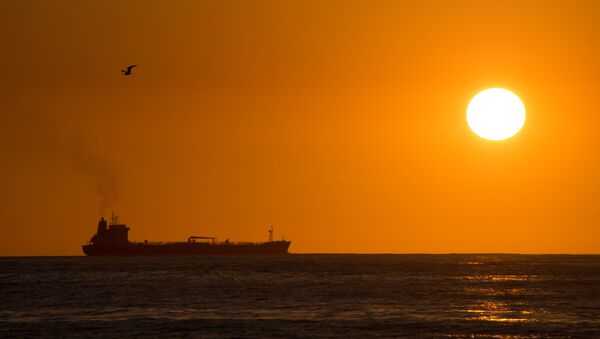"Water is much more valuable than oil ... there's so much oil," Trump told reporters Friday. Petroleum prices remain at historic lows amid the continuing dispute between the Russian Federation and the Kingdom of Saudi Arabia about oil production levels during the COVID-19 pandemic. The crisis has brought the global economy to a halt, creating an unprecedented glut in oil supplies as trade and travel all but ceases.
"The fees brought our country an incredible amount of money. I applied them to China, I applied them to others. Do I use them for oil? This is what I can do. Do I think about applying them at the moment? No. But if they treat us unfairly, then this is a tool," Trump said.
"They are having a dispute, the two countries. Russia is being hurt unbelievably badly and Saudi Arabia is being hurt unbelievably badly … that’s where they get most of their income,' Trump said at the White House. "They're going to stop because ultimately the market will get them to stop."
The previous day he expressed his hope and support for a resolution soon. "I hope they can make a deal, they both want to make a deal," Trump said at the time. "They both love their countries."
While Trump has spoken with both Russian President Vladimir Putin and Saudi Crown Prince Mohammad bin Salman separately, negotiations between Saudi Arabia and Russia have not yet begun and are not yet scheduled to begin, according to a Kremlin spokesperson.
The Trump administration has also weighed the wisdom of shutting down US oil rigs in the Gulf of Mexico as part of the nationwide effort to clamp down on spread of the COVID-19 novel coronavirus. Such a move would cut US domestic oil production by 2 million barrels per day, and news of the suggestion on Friday sent oil markets rocketing skyward, gaining 20% of their value.
However, existing tariffs may be a barrier to ending the crisis, according to Sputnik analyst Maxim Rubchenko, who argued on Friday that the real target of Russia's dispute is US shale oil production, which is far more expensive to produce than those drilled by Roseneft in Russia's Arctic and Siberian regions or in Saudi Arabia's Eastern Province.

